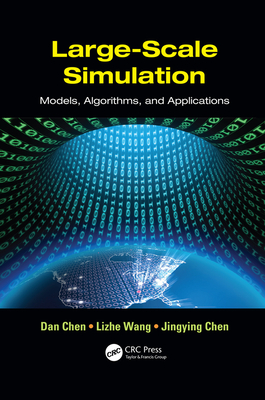Guide to Simulation-Based Disciplines: Advancing Our Computational Future (Simulation Foundations, Methods and Applications)
暫譯: 基於模擬的學科指南:推進我們的計算未來(模擬基礎、方法與應用)
商品描述
This invaluable text/reference reviews the state of the art in simulation-based approaches across a wide range of different disciplines, and provides evidence of using simulation-based approaches to advance these disciplines. Highlighting the benefits that simulation can bring to any field, the volume presents case studies by the leading experts from such diverse domains as the life sciences, engineering, architecture, arts, and social sciences.Topics and features: includes review questions at the end of every chapter; provides a broad overview of the evolution of the concept of simulation, stressing its importance across numerous sectors and disciplines; addresses the role of simulation in engineering design, and emphasizes the benefits of integrating simulation into the systems engineering paradigm; explains the relation of simulation with Cyber-Physical Systems and the Internet of Things, and describes a simulation infrastructure for complex adaptive systems; investigates how simulation is used in the Software Design Life Cycle to assess complex solutions, and examines the use of simulation in architectural design; reviews the function and purpose of simulation within the context of the scientific method, and its contribution to healthcare and health education training; discusses the position of simulation in research in the social sciences, and describes the simulation of service systems for simulation-based enterprise management; describes the role of simulation in learning and education, as well as in in military training.With its near-exhaustive coverage of disciplines, this comprehensive collection is essential reading for all researchers, practitioners and students seeking insights into the use of various modeling paradigms and the need for robust simulation infrastructure to advance their field into a computational future.
商品描述(中文翻譯)
這本無價的文本/參考書回顧了基於模擬的方法在各種不同學科中的最新進展,並提供了使用基於模擬的方法來推進這些學科的證據。強調模擬能為任何領域帶來的好處,本書呈現了來自生命科學、工程、建築、藝術和社會科學等多個不同領域的領先專家的案例研究。
主題和特點:每章結尾包含回顧問題;提供模擬概念演變的廣泛概述,強調其在眾多行業和學科中的重要性;探討模擬在工程設計中的角色,並強調將模擬整合進系統工程範式的好處;解釋模擬與網路物聯網(Internet of Things)及網路物理系統(Cyber-Physical Systems)之間的關係,並描述複雜適應系統的模擬基礎設施;研究模擬在軟體設計生命週期中如何用於評估複雜解決方案,並檢視模擬在建築設計中的應用;回顧模擬在科學方法中的功能和目的,以及其對醫療保健和健康教育訓練的貢獻;討論模擬在社會科學研究中的地位,並描述基於模擬的企業管理中的服務系統模擬;描述模擬在學習和教育中的角色,以及在軍事訓練中的應用。
這本涵蓋學科幾乎無所不包的綜合性著作,對於所有尋求洞察各種建模範式及其在推進領域進入計算未來所需的穩健模擬基礎設施的研究者、實務工作者和學生來說,都是必讀之作。










